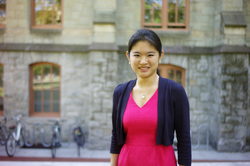People
Faculty

Antje Kirchner
Antje Kirchner, PhD, is a Research Survey Methodologist at RTI International and an Adjunct Research Assistant Professor at the University of Nebraska - Lincoln. Her research addresses challenges in survey methodology, including ways to examine nonresponse bias using machine learning techniques, adaptive/responsive designs, assessing the quality of survey and administrative data, and how to improve response quality in surveys using behavior coding and paradata. Her research has been published in journals such as Public Opinion Quarterly, Journal of Survey Statistics and Methodology, and Journal of the American Statistical Association. She recently organized the “Big Data Meets Survey Science (BigSurv18)” conference.
Craig A. Hill
Craig A. Hill, PhD, is the Senior Vice President for Survey, Computing, and Statistical Sciences division. He creates the strategy and vision for his business unit, and manages and directs a portfolio of more than 150 studies and more than 500 professional staff. Dr. Hill received his PhD in quantitative methods from the Political Science department at the University of New Orleans and has published in a variety of journals. He also was the lead editor for Social Media, Sociality, and Survey Research (Wiley, 2013). Recent presentations include “Thoughts, Ruminations, and Twitter-ready Soundbites on Data Science, Big Data, and Social Science Research” (2017 Royal Statistical Society) and “Moving Social Science into the Fourth Paradigm” at BigSurv18 in Barcelona.
Alan Blatecky
Alan Blatecky, PhD, is a Visiting Fellow at RTI International and has broad expertise in high performance computing, international networking, computational science, Artificial Intelligence and advanced cyberinfrastructure. As a Visiting Fellow, Alan focuses on integrating and deploying advanced technologies to transform research and education. Alan previously was the Director for the Office of Cyberinfrastructure (OCI) at the National Science Foundation, Deputy Director of the Renaissance Computing Institute, Executive Director of Research and Programs at the San Diego Supercomputing Center, and Vice President of Information Technology at MCNC and NCREN (North Carolina Research and Education Network). Alan recently co-authored a book; “Reproduciblity: A Primer on Semantics and Implications for Research.
Helen Jang
Helen Jang, Senior Director at RTI International, leads Project Catapult, a company initiative focusing on applying computational social science and directs the Center for Digital Innovation in Education and Workforce Development division. Her work leverages data and emerging technologies to improve policy and practice. Pivotal work includes the National Center for Education Statistics’ [DataLab](https://nces.ed.gov/datalab/index.aspx), which offers public access to data from 50 federal studies, [USAID’s Early Grade Reading Barometer](https://earlygradereadingbarometer.org/), which offers a wealth of actionable assessment data to improve literacy outcomes, and the [Evaluation Engine](https://evaluationengine.org), a quasi-experimental impact evaluation tool designed to help states use their longitudinal education data to improve instruction.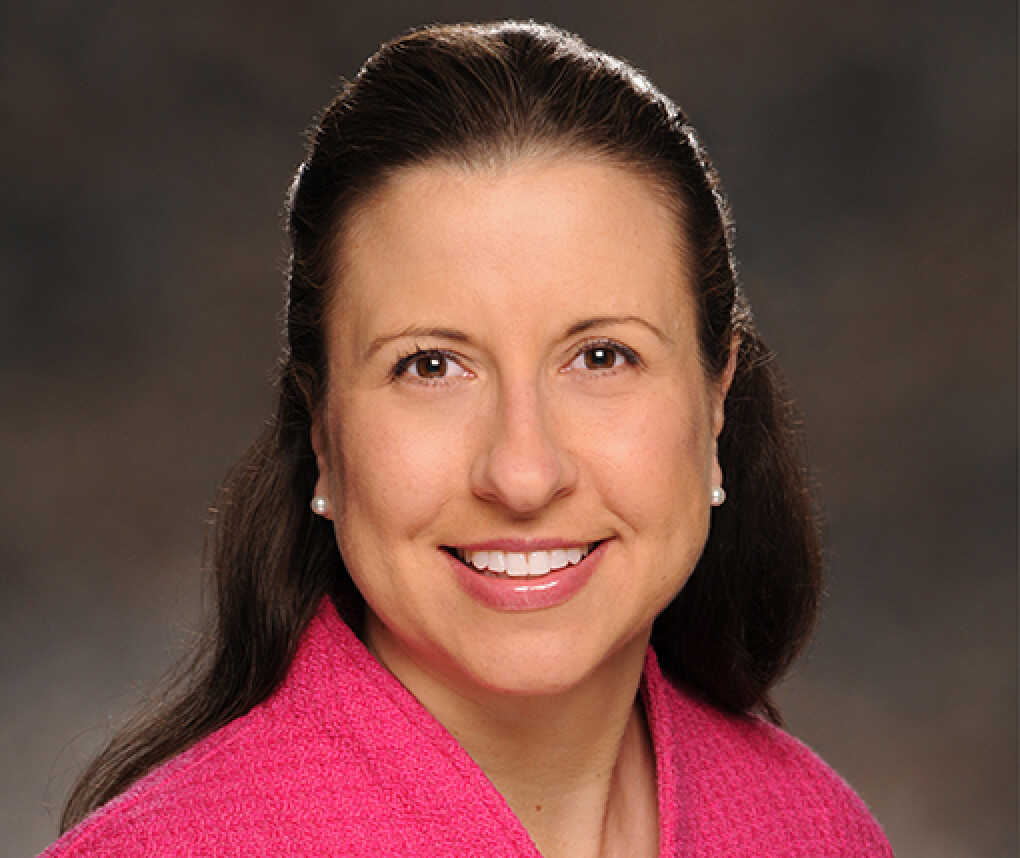
Jacqueline Olich
Jacqueline Olich, PhD, is an administrator, educator and entrepreneur with experience building partnerships and developing innovative initiatives. She joined RTI International in 2014. As RTI’s first senior director of University Collaborations, she leads RTI International's University Collaboration Office (UCO), which serves as a catalyst and hub for outreach at the university level. She develops and manages partnerships with leading regional, national and international academic institutions. She leads the [RTI University Scholars Program](https://www.rti.org/rti-university-scholars-program) and the [RTI Internship Program](https://www.rti.org/internships). Dr. Olich is an adjunct associate professor in the [UNC Gillings School of Global Public Health’s](http://sph.unc.edu/) Public Health Leadership Program.Speakers

Sam S. Adams
Sam Adams is a Senior Artificial Intelligence Researcher at RTI International and also the Mission Architect for Project Catapult, a company initiative focusing on applying computational social science. He applies artificial intelligence and knowledge graph techniques to the unique data curation and integration challenges that data scientists face. He holds 29 patents and previously spent more than 2 decades with IBM Research, where he was appointed one of the first IBM Distinguished Engineers. Mr. Adams played a leading role in various strategic initiatives—including artificial general intelligence, autonomous learning, end-user programming, contextual data fusion, big data and analytics, enterprise-scale data curation, and massive multicore programming and high-performance graph database acceleration; he also applied Internet of Things data and reactive knowledge graphs to the challenges of global elder care.
Rob Chew
Rob Chew is a Research Data Scientist and Program Manager in RTI International's Center for Data Science. He uses his expertise in machine learning, software development, and computational social science to help subject matter experts solve their complex problems. Dedicated to interdisciplinary research, he has successfully integrated data science into projects spanning health care, criminal justice, public health, and the environment. In addition to [publishing](https://www.robchew.com/#publications), Mr. Chew has also developed open-source [analytical software packages](https://github.com/RTIInternational/rollmatch) and [applications](https://rtiinternational.github.io/SMART/). He was named a 2018 Data Fellow by the National Consortium for Data Science.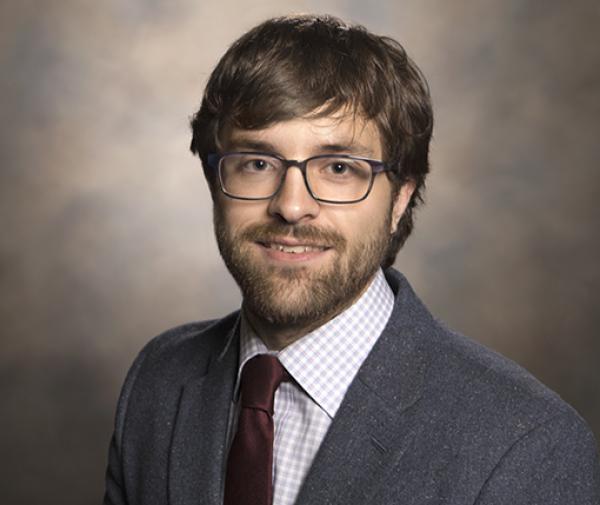
Kasey Jones
Kasey Jones is a Data Scientist with over four years of experience solving client problems using data analysis techniques in R and Python. He applies predictive modeling, simulation techniques, text analysis, and machine learning to produce impactful solutions. While at RTI, Mr. Jones has developed several modeling algorithms in conjunction with RTI's synthetic population. Projects include - predicting underage drinking rates in D.C., developing a social vulnerability index, and creating an agent-based model that calculates healthcare acquired infection rates for hospitals in North Carolina for the Centers for Disease Control and Prevention.
Georgiy Bobashev
Georgiy Bobashev is an RTI Fellow in the Center for Data Science at RTI International with more than 20 years of experience in health research. His current research interests follow two major areas - predictive modeling and studies of substance use and risky behaviors. His models often combine mechanistic (e.g., agent-based and system dynamics) and machine learning techniques. Dr. Bobashev has applied modeling, statistical analysis and experimental design to a variety of health- and policy-related areas, including substance use, HIV, child/maternal health, influenza, cancer, diabetes, and violent behavior. He has been a principal investigator and co-investigator on numerous grants from the National Institutes of Health (NIH).Teaching Assistants
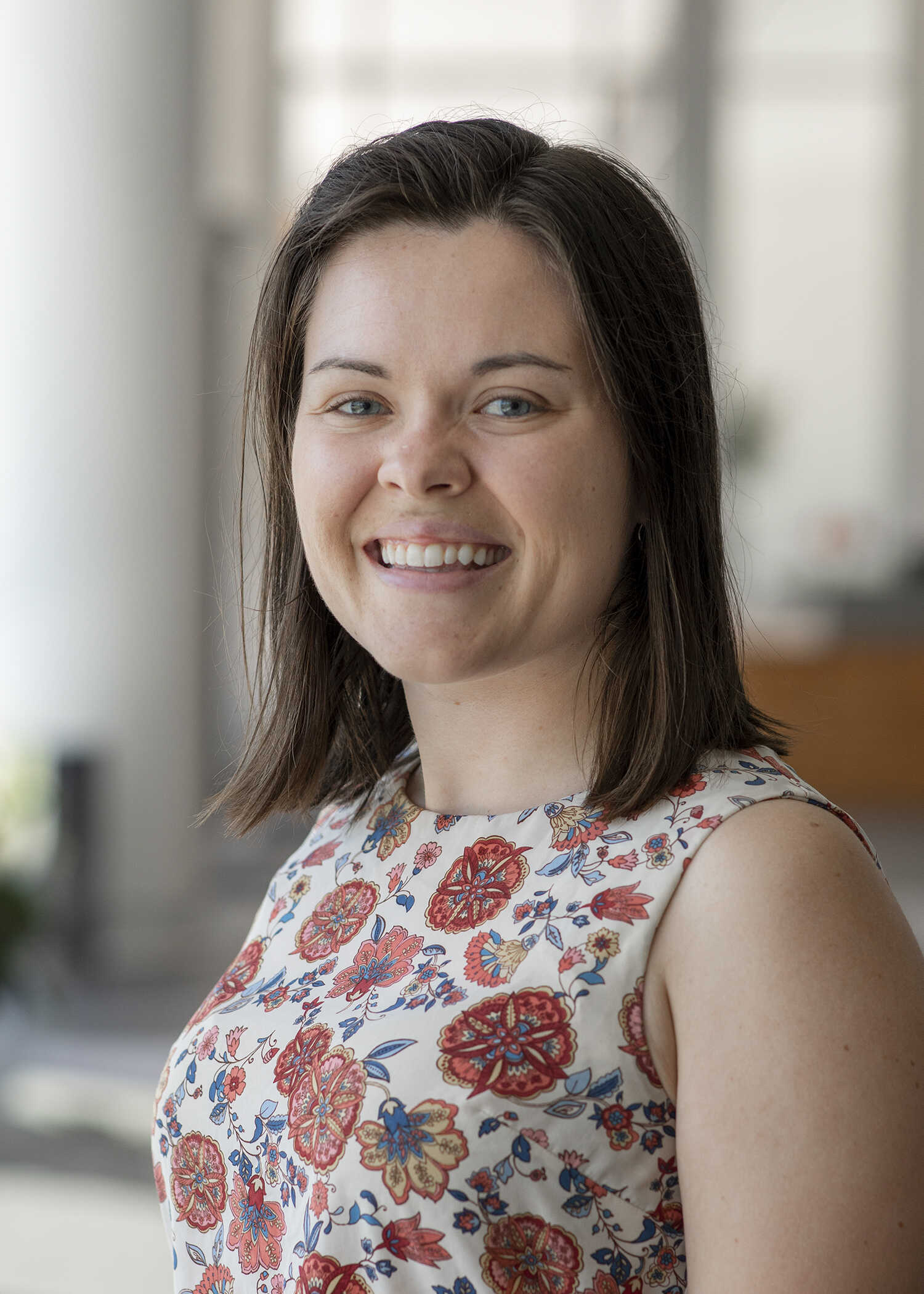
Emily Hadley
Emily Hadley is a Data Scientist with the Center for Data Science at RTI International. She uses her technical skills on a variety of health, education, and computational social science projects. Emily has experience with machine learning techniques, natural language processing, predictive analytics, data visualization, and data ethics, as well as expertise programming in Python, R, and SQL. She holds a BS in Statistics with a second major in Public Policy from Duke University and a MS in Analytics from the Institute for Advanced Analytics at North Carolina State University.
Marcus Mann
Marcus Mann recently received his Ph.D. in sociology from Duke University and is an incoming Assistant Professor of Sociology at Purdue University. He studies science, politics, knowledge, and media using computational methods. His current research uses data from Twitter to examine how political media consumption patterns affect susceptibility to political disinformation. He also holds a BA in English from UMass - Amherst and MA's in religious studies and sociology from Duke University.Participants

Ben Allaire
Mr. Allaire is a health economist in RTI International’s Public Health Economics Program. His research promotes understanding of the economic implications and burden of chronic disease, including diabetes, cardiovascular disease, cancer, obesity, asthma, and HIV. He specializes in using econometric and simulation modeling techniques to identify the drivers of impact, costs, and cost-effectiveness in preventing and treating chronic disease.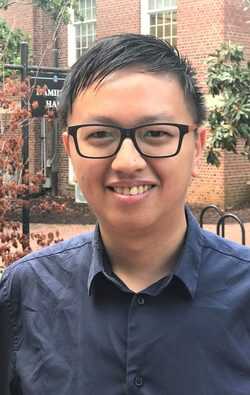
Kyle Chan
Kyle Chan is a PhD student in Political Science at the University of North Carolina at Chapel Hill. His research interest is multi-level governance and politics in Western Europe. Kyle looks at the implications of decentralization reforms to party politics, electoral politics and policy coordination across different levels of government. In particular, he is interested in how regionalist parties behave strategically after decentralization reforms. For example, he has an ongoing project that seeks to tease out the sources of regionalist party program variations on immigration in Western Europe. His research was published on Regional and Federal Studies. He obtained his research master's degree at Leiden University in the Netherlands, and completed his undergraduate studies at the Hong Kong Baptist University.
Wei Chang
Wei is a doctoral candidate in health policy at University of North Carolina at Chapel Hill. Her research focuses on gender, household decision-making, and health in developing countries. With a background in economics, public health, and social work, she conducts cross-disciplinarily population research and evaluates interventions in maternal, sexual, and reproductive health. Her work aims to improve women’s agency through producing and synthesizing research evidence for policy decisions in low-resource settings.
Mateo Villamizar Chaparro
Mateo Villamizar Chaparro is PhD student in Political Science at Duke University. He holds a master’s degree in International Affairs (UCSD) and Political Science (Universidad de los Andes). His research focuses on the interactions between political economy, migration and violence with a regional focus on Latin America. He draws on methods as causal inference and experimental design. Mateo is also part of DevLab@Duke and the Duke/UNC Latin America Working Group.
Michelle Corea
Michelle Corea is an incoming PhD student in the Political Science department at UNC Chapel Hill. Her research interests revolve around contentious politics and violence under authoritarian regimes. Methodologically, she is interested in a variety of computational approaches that include network and text analysis. Prior to graduate school, Michelle worked as a software developer at IBM and HCL Technologies. She received her BS in Mathematics from UNC Chapel Hill.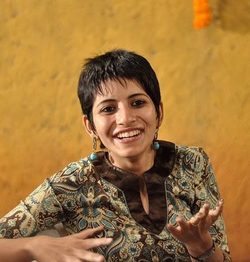
Karishma D’souza
Karishma is a PhD student in the Department of Health Policy and Management at UNC-Chapel Hill. She is interested in studying dual health markets - the simultaneous existence of private and public healthcare markets, and how the interplay of the two health markets influences health seeking behaviors in developing countries. Her current research focuses on the Direct-to-Consumer (DTC) telehealth market and its effect on primary healthcare markets in resource-constrained settings.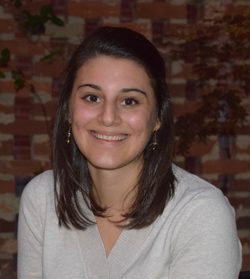
Claire Chipman Gilliland
Claire Chipman Gilliland is pursuing a PhD in Sociology at UNC-Chapel Hill. She studies how religious groups both combat and perpetuate inequality, focusing primarily on U.S. Christian institutions. She is developing computational text analysis methods to investigate sermons, or weekly religious messages, following important social and religious events for her dissertation. Claire holds a BA in Sociology and History from Furman University and an MA in Sociology from UNC-CH.
Christopher Inkpen
Christopher Inkpen is a research sociologist and demographer in the Division for Applied Justice Research at RTI International. At RTI, Dr. Inkpen leads research and data collection for several projects focusing on criminal justice and security in Central America. His substantive research focuses on public opinion of the criminal justice system and justice issues as well as extracting narratives on the criminal justice system from massive text corpora. His research has been funded by the National Science Foundation, the Institute of International Education, and the Department of State’s Bureau of International Narcotics and Law Enforcement Affairs.
Molly Jacobs
Molly M. Jacobs is an Assistant Professor at East Carolina University in Health Services and Information Management. She received her PhD from the George Washington University Department of Economics with a concentration in econometrics and labor economics. She holds a master’s degree in economics from George Washington University and degrees in economics and German from Duke University. She engaged in research grants from the US Department of Agriculture, Veterans Affairs and Commerce on a variety of topics including food stamps receipt, veterans’ disability rating, food security and patient activation measures. Dr. Jacobs served for four years as an agricultural economist for the USDA and was named a Fulbright Scholar to Berlin, Germany. Her research has focuses is on the design, implementation and evaluation of community health interventions targeting mental and physical well-being outcomes. She has extensive experience in collection and analysis of individual level health data examining the relationship between body perception and weight change as well as social and psychological influences on physical development.
Sophie Kelmenson
Sophie is a PhD Candidate in City and Regional Planning at the University of North Carolina at Chapel Hill. She is interested in natural resource and food systems planning processes, and their interaction with economic development and equity considerations. She employs statistical and qualitative methods, as well as text and social network analysis in her research. She received her bachelor’s degree in government and legal studies from Bowdoin College, and a master’s degree in City and Regional Planning from the University of North Carolina at Chapel Hill.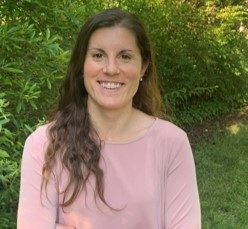
Kelly Kilburn
Kelly Kilburn is a Research Scholar at the Duke Global Health Innovation Center. As a social and economic policy researcher she applies interdisciplinary quantitative techniques to analyze the causal impacts of development policies on health and human resources and their pathways of influence. Before joining Duke, Kelly was a postdoctoral scientist at George Washington’s School of Public Health and at UNC’s Institute for Global Health and Infectious Diseases. She holds a PhD in Public Policy and has years of experience working on experimental evaluations of social protection policies for poor and vulnerable populations across the Middle East and sub-Saharan Africa.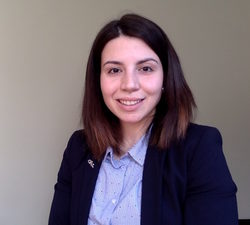
Eleftheria Kontou
Eleftheria Kontou is a postdoctoral researcher in the Department of City and Regional Planning at the University of North Carolina at Chapel Hill. Her research interests lie in the fields of sustainable transportation planning and operations, emerging mobility, as well as transportation and energy sectors interdependencies. She is proposing new models and algorithms to improve sustainable mobility operations to serve communities in an equitable manner. She received her Ph.D. in Civil Engineering from the University of Florida and conducted research at the National Renewable Energy Laboratory and the Oak Ridge National Laboratory.
Elena Leonchuk
Elena Leonchuk is a postdoctoral research scholar at North Carolina State University, where she received her PhD in psychology. She specializes in research consulting and evaluation of science, technology and innovation programs and partnerships and their diverse stakeholders. Themes of her projects include R&D management, economic impacts, innovation process, and acquisition of social capital. Elena is the most passionate about bringing different sectors and disciplines together to solve current business and societal problems. She is a former division I varsity tennis player at Virginia Commonwealth University where she received her BS in political science.
Chao Liu
Chao is a PhD student in the Department of Sociology at North Carolina State University. He is interested in computational social science, social network analysis, and organization. His current research explores the conditions under which work-based collaboration is possible in a virtual platform. Specifically, he investigates how network embeddedness within an online community affects individual contributions to team-based production using both numerical and textual data from the GitHub Community.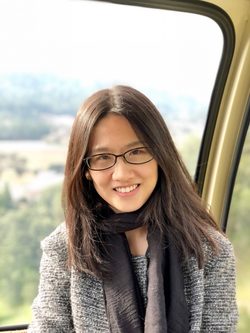
Jiangmeng Liu (Helen)
Jiangmeng Liu (Helen) is an Assistant Professor of Strategic Communication in Communication Department at Seattle University. She received her Ph.D. in Communication from the University of Miami in 2017. Her research centers on individual and organizational use of social media, particularly regarding the influence of social media usage on individuals’ cognition, emotions, and behaviors.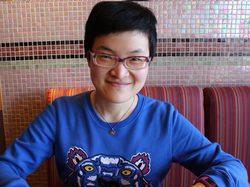
Zhifan Luo
Zhifan Luo is a Ph.D. candidate of sociology at the University at Albany—State University of New York. Her research interests include political sociology, computational social science, elite politics, global hegemony, and political narrative. Her current project examines the role played by the political, the economic, and the military elites in shaping the China policy in the United States. She is also collaborating with colleagues on projects using big-data techniques to analyze political discourse on Chinese social media.
Tim McDade
Tim McDade is a PhD student in the Political Science department at Duke University. His research employs quantitative methods to analyze democratic backsliding, the effects of bilateral financial flows on the state capacity and market structure of recipient countries, and countries’ decision-making processes during conflicts. His undergraduate degrees are in Mathematics (with Honors) and Chinese from the College of William & Mary. Prior to arriving at Duke, Tim worked for Microsoft Azure in Seattle and Beijing.
Becca Merrill
Becca Merrill will be graduating this Spring with a PhD in Education from the University of North Carolina at Chapel Hill. She has accepted a position as a researcher with Education Northwest, which currently houses the REL Northwest. Her work focuses on policy, leadership, and school improvement. Specifically, she employs qualitative and quantitative methods to study aspects of the teacher labor market. These include attracting quality teachers, hiring practices, teacher mobility and retention, teacher working conditions, and exit from the teacher work force.
Samantha Mosier
Samantha L. Mosier is an Assistant Professor in the Department of Political Science and a core faculty member of the Master of Public Administration program at East Carolina University. Her main fields of interest are public policy and public administration. Samantha’s research utilizes mixed methods to study the development and implementation of subnational environmental initiatives and sustainable food and agriculture policies. She received her Ph.D. in Political Science from Colorado State University and her M.P.A. from Auburn University Montgomery.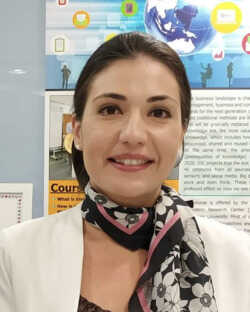
Ioanna Pavlidou
Ioanna Pavlidou is a PhD Student at the Hong Kong Polytechnic University. Her research interests include online social media and data analysis with special focus on online crowdfunding industry. Her current work explores how online crowdfunding platforms can help to bridge geographical, socioeconomic and cultural disparities in capital access. In her research, she experiments with computational social science, data mining and network graphs.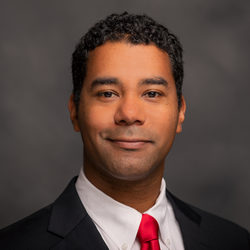
Derek Ramirez
Derek Ramirez is a data manager and social science researcher at RTI, International. His research interests include behavioral health, criminal justice, prevention science, wearables, machine learning, economics, and statistics. He is broadly interested in applying data science techniques and advanced quantitative methods in social research settings. Derek holds a BS in Applied Mathematics with a concentration in Computer Science and a Minor in Spanish from North Carolina State University and a MS in Applied Economics from East Carolina University.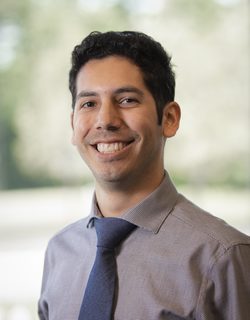
Nestor Ramirez
Nestor Alexis Ramirez is a Research Education Analyst at RTI International and a PhD candidate in the School of Education at the University of North Carolina at Chapel Hill. Nestor works on postsecondary student surveys including the National Postsecondary Student Aid Study and the Beginning Postsecondary Students Study, contributing to post-data collection activities such as variable derivation, data management, and publication tasks. His research agenda is broadly focused on college access for underrepresented students in the United States—his dissertation is focused on the role of geographic location and students’ willingness to relocate for college in the college decision-making process.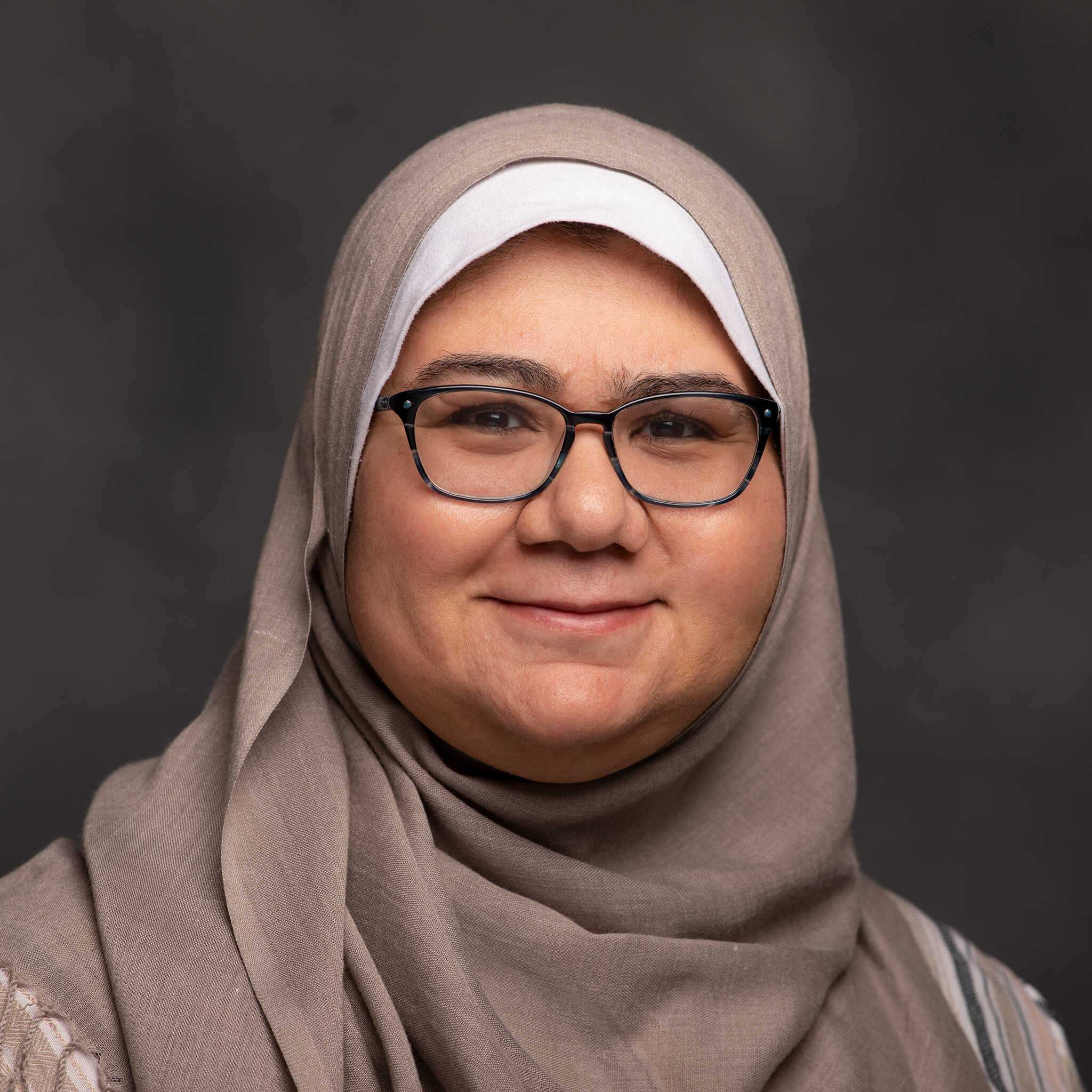
Marwa Salem
Marwa Salem is a Senior Economist at RTI International. She received her PhD in Economics from North Carolina State University and in her dissertation, examined how household water consumption has responded to price and non-price demand side management policies. In her current position, she conducts quantitative analyses in different areas of environmental economics and management. She is interested in expanding the use of computational methods as complements to conventional econometric models in analyzing environmental policies and climate change impacts.
Jonathan Schlosser
Jonathan Schlosser is currently a PhD student in the School of Media and Journalism at UNC Chapel Hill, where he studies the effects of disinformation on the public’s perception of social and political issues. Current projects focus on the ways in which disinformation on social media can disrupt the process of learning, the development of beliefs/attitudes, and, consequently, political discourse in the public sphere. Jonathan is originally from Sullivan County, New York, but completed his MSc at Lancaster University and earned his BS from Binghamton University. He has worked in education, digital marketing, environmental science, broadcasting, and many other fields; these experiences have resulted in interdisciplinarity and multidimensionality being major factors in his work. He is excited for this opportunity and anticipates learning new things, meeting new people, and engaging with the SICSS community.
Katherine Tait
Katherine Tait is a Ph.D. candidate in Sociology at the University of North Carolina - Chapel Hill. Her research examines the interrelationship between economic conditions and social movements, particularly the politicization of work and use of direct action during times of high economic inequality. Her dissertation on the expanding worker cooperative sector in New York uses qualitative and computational methods to investigate how employees of democratic workplaces, advocacy organizations, and local institutions are coordinating their goals and efforts to create secure employment, and to inquire into what worker-ownership means to different actors in the NYC cooperative ecosystem.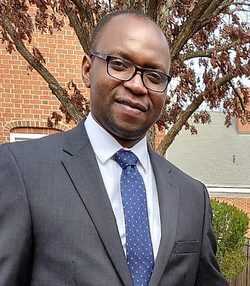
Eugene Uwiragiye
Eugene Uwiragiye is a PhD student at North Carolina A&T State University in Computational Science and Engineering. He is interested in medical images classification using deep learning (Convolutional Neural Networks, VGG16, VGG19, Resnet and Xceptions. He also works in Biostatistics (Post-Translational Modification of proteins) as Graduate Research Assistant. Eugene holds BS and MS in Operational Research and Stochastic Calculation from Sidi Mohammed Ben Abdellah in Morocco. He uses Python in different predictive models and machine learning.
Felecia Vega
Ms. Felecia Vega is a researcher and intelligence analyst at the Laboratory for Analytic Sciences (LAS), a Department of Defense organization located on NC State’s Centennial Campus. The LAS is a collaborative effort between government, industry and academia, established to address the Intelligence Community (IC) analytic challenges. Ms. Vega is currently the technical lead for the LAS Computational Social Science & Triage team. The team is focused on innovation and deployment of new methods, techniques and tools for analyzing large volumes of quantitative and qualitative data. Ms. Vega’s research includes utilizing interdisciplinary methods to characterize and prioritize radicalized individuals along a “virtual spectrum” through triaging and machine learning algorithms. She has also pioneered a major framework to recognize and address an immediate IC need for developing Open Source tradecraft. Ms. Vega holds a Master’s of Science degree in Computer Science from Bowie State University and a Bachelors of Arts degree in Mathematics from St. Mary’s College of Maryland. Ms. Vega lives in Raleigh, NC and enjoys watching football and spending time with family.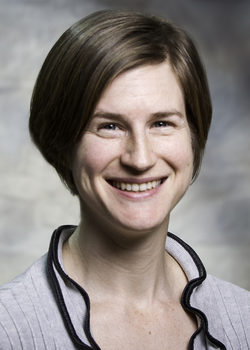
Siri Warkentien
Siri Warkentien is a researcher in the Education and Workforce Development division of RTI International where she researches how family, school, and neighborhood contexts affect youth outcomes and evaluates educational programs for historically underserved youth. She received her PhD in Sociology and MA in Applied Mathematics and Statistics from Johns Hopkins University where she focused on the causes and consequences of racial school and neighborhood segregation. Her research interests also include how information and networks influence families’ residential and school decisions.
Tara Weatherholt
Tara Weatherholt, PhD, is an early childhood development researcher in the International Education Division of RTI International. Working primarily in low- and middle-income countries, she is responsible for designing and testing measures of child development and quality of learning environments, managing evaluation activities of RTI-supported pre-primary education programs, and leading large- and small-scale research studies, such as investigations into the factors related to education system efficiency in Uganda and the state of pre-primary education in Tanzania. Her research interests include cognitive development of children in disadvantaged environments, development of valid and reliable measures of learning for use in low-income contexts, and the use of data to inform quality early learning programming.
Lawrence Whitley
Lawrence Whitley, Manager and Technology Lead in Clinical Research Informatics for RTI International, is expert in informatics and technology projects. His work on epidemiological research solutions includes surveys and longitudinal studies, collecting demographic, neurocognitive, clinical, biospecimen, medical history, family history, and genetic data. He serves as visionary, architect, lead developer and project manager for the implementation of a large custom software solution for mapping and harmonizing data across 70 cohorts for the ECHO Program, a large grant under NIH. He is focused on enhancing epidemiological and clinical research through machine learning, including deep learning with neural networks. He is very interested in how computational social science might augment that research. As a Technology Lead, he is uniquely positioned to help other staff expand their skills and experience in AI.